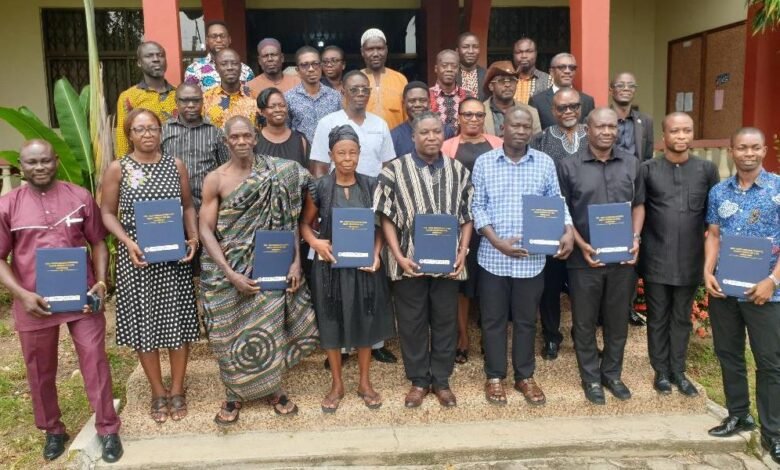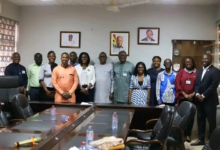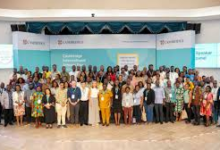CSIR ready to partner stakeholders to revolutionise agric landscape—Prof. Bosu

Council for Scientific and Industrial Research (CSIR) has reiterated its readiness to partner the government and development partners to revolutionise the agricultural landscape in order to ensure enhanced food security, job creation, youth development and improved livelihoods.
“We have the required technologies for this great transformation and are committed to work with government and development partners to achieve the Ghana that we all desire,” the Director-General of the council, Professor Paul Bosu, has assured.
He was speaking at the signing ceremony of a consortium made up of the Crop Research Institute of the CSIR (CSIR-CRI), Research Extension Advisory Coordination Hub (iREACH) and some reputable farmers in the country.
The CSIR-CRI iREACH consortium, comprise eight organisations with the CSIR-CRI as the lead institution and seven large scale farm enterprises within Ashanti, Bono and Bono East Regions.
The objective is to scale highly productive and commercially viable technologies developed by the CSIR and its partners through years of rigorous research.
Prof. Bosu indicated that, “this is a strategic alliance to bridge the gap between technology development and utilisation…this consortium is, therefore, one of the many other initiatives being rolled out together with the CSIR Endowment Fund.”
The Director General also observed that the agricultural sector continued to face numerous challenges in terms of access to affordable and productive technologies, “which explains why CORAF as a regional organisation is promoting the iREACH with support from its partners.”
“As the Director General of CSIR, I will ensure its sustainability to become the main vehicle for making CSIR technologies readily accessible and affordable,” he added.
He was grateful to the sponsors (USAID through Kansa State University and the World Bank through its Food Systems Resilience Project) for the wonderful business model.
The Technical Manager of the CORAF iREACH initiative, Dr Caroline Makamto Sobgui, on her part was worried that most of the times technologies that had been developed did not get to the farmers which was a big worrying.
With the consortium in place, she said, it would play a major role to ensure the technologies would be highly patronised by farmers to ensure high food production in the country and other African nations.
She was optimistic the consortium would facilitate access to technologies by farmers to ensure high yields and food security.
CORAF iREACH Development Manager, Dr Jonas Osei-Adu, expressed the hope that farmers would now make good use of the technologies developed to enhance prosperity, food and nutrition security in Ghana and Africa as a whole.
He said efforts would be made to support and build local human and institutional capacity development in order to ensure the consortium worked to expectation.
Ag. Director of CSIR-CRI, Dr Ernest Baafi, took participants through the mandate of the Institute to develop and disseminate demand- driven technologies, and build capacity for sustainable food and industrial crop productivity to enhance livelihoods.
The Coordinator of CSIR-CRI iREACH initiative, Prof. Emmanuel Otoo, on his part mentioned that over 150 varieties of crops have been released, and the technologies were available, stressing that, “if we combine forces together, with the consortium, we will survive.”
A member of the consortium, Yusif Bunbas, on behalf of colleague farmers, pledged support to ensure the project work effectively to enhance food production in the country.
FROM KINGSLEY E. HOPE, KUMASI




